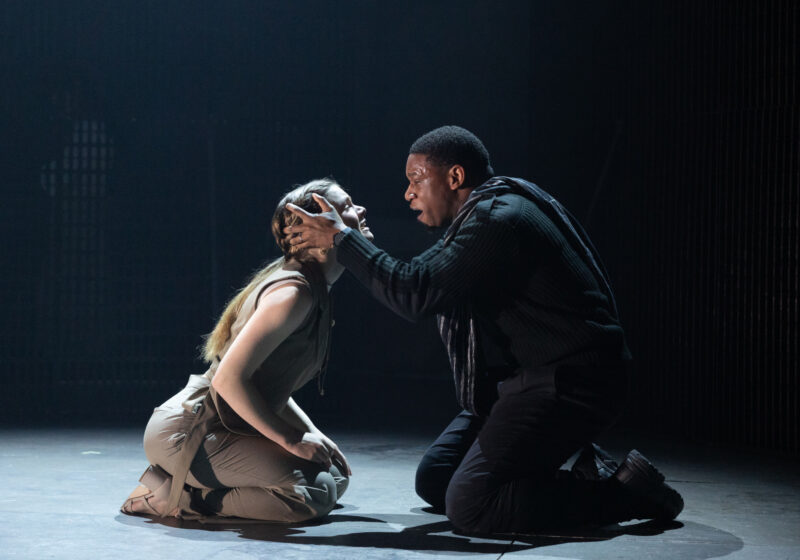The summer before seventh grade, I attended a sleep-away camp in the Birkeshire Mountains of Massachusetts. On the last night of camp, I was slowly roasting a marshmallow during the camp-wide farewell, when a girl of a similar age to myself approached me and introduced herself.
Now, until this moment, I hadn’t talked to a girl for the entire two months of camp, save for my mother and the camp nurse. Perhaps this worked to my advantage, however, as I never for a moment considered that this girl’s forwardness was actually a sexual advance. Consequently, I treated her like she was nobody in particular, and especially not as an attractive girl (which she was).
She called me “weird, but in a good way” and kept saying that I was “hilarious,” although she never did manage more than a chuckle. I was in the middle of explaining my unique process of making a s’more when suddenly she leaned toward my face and kissed me. She then stood up, smiled and turned to leave. Though the kiss was only a peck, it had a magical effect. As the girl skipped away, I finally began to notice her femininity. And then a strange feeling began to set in – that I was no longer a child. I was growing up.
Two weeks after my initial Bar Mitzvah rejection, I stood on the dance floor of the Jewish Community Center for my first Bar Mitzvah experience. It might not have had a fondue fountain or a wax-hand maker like Rachel Stein’s Bat Mitzvah in the Hyatt, but it had something much more important – plenty of attractive girls.
As I heard the angelic harmony of Savage Garden’s “Truly Madly Deeply” begin to play over the sound system, I knew the time had finally come to see how much of a man I had become. Scouting out the room, I keyed in on the most attractive girl and, boldly, I approached her. “Hi,” I began amicably. “I was wondering?”
“Well stop wondering,” she said, sternly cutting me off, “I’m not going to dance with you.” And with that, she brushed by me and started in the other direction. With a hint of sympathy, she called out over her shoulder, “There are plenty of girls here, I’m sure you’ll find someone to dance with.”
Unfortunately, I didn’t. With a Bar Mitzvah practically every weekend, my dance floor rejections became quite commonplace. Each week, I’d work up my slowly deteriorating nerve to ask a girl to dance and, more times than not, the answer would be no.
My ego couldn’t handle more than two rejections a day so, if the first two girls I asked to dance said no, I’d be spending the rest of the night by the punchbowl, trying to look busy. By the end of that school year, I had been rejected by more than half the girls in my grade and my confidence had plummeted to an all-time low.
But rejection from the opposite sex was only the beginning.Eventually, I stopped going to the dance floor altogether with one exception: the limbo.
Though its origins lay in the heavily Roman Catholic Trinidad and Tobago, the Caribbean dance game, in which participants attempt to arch their back underneath a pole without touching it, has, through Bar/Bat Mitzvahs, found a lasting place in mainstream Jewish culture. Often, the only bright spot of the night for me was the limbo because I, being quite good at it, would routinely win the game (and whatever prize came with it).
On one particular night, the prize was a Hootie and the Blowfish CD and, being that this was in 1997, it was a hot commodity. In each round, I cleared the bar with ease, unlike many of my fitter fellow classmates. Finally, I reached the last round and it was down to me and a 3-year-old girl.
I arched as far as I could and tried to squeak my way under the bar. At the last moment, though, I slipped and crashed into the bar, causing it to fall. “No problem,” I thought to myself, “there’s no way that girl can make it, either.”
As they readjusted the bar, the 3-year-old girl let out a giggle and jumped over the bar – grounds for immediate disqualification. As I slowly let out a sigh of relief, the DJ picked up his microphone and said, “Isn’t she cute, folks!” And then, picking her up, he continued, “We have a new winner.”
I slowly felt the tears welling up in my eyes as the DJ handed her the CD prize, which she subsequently threw to the floor. With tears streaming down my cheeks, I confronted the DJ and yelled in a choked-up voice, “She doesn’t even know what alternative music is!” I then ran out of the auditorium and into the coat room where I hid until my mom picked me up an hour later.
Toward the end of that year, it just so happened that on one particular weekend, three separate Bat Mitzvahs were scheduled to occur. Two of the Bat Mitzvah girls were quite popular and, not surprisingly, I didn’t get an invitation from either of them.
The third girl, however, was arguably the least popular girl in my grade and so it was not a great shock when I received an invitation to her’s. I saw the unpopular girl’s Bat Mitzvah as a rare opportunity – to attend a Bat Mitzvah in which my presence would be appreciated; after all, most of the grade would be at the other two celebrations.
At the party, I spotted the Bat Mitzvah girl and approached her to give her my congratulations. “Hey Tammy, great job today,” I told her with a smile. “And you look really beautiful.”
“Thanks,” Tammy answered apprehensively. “I’m sorry,” she continued shyly, “but should I know you?”
A decade after that final blow was delivered, I still grimace when I think about it. In the years that followed seventh grade, I would sometimes drift back into my Bar Mitzvah-hopping days and imagine myself as the cock of the walk, so to speak. Then, one day last summer, I saw a way to make my (day)dream a reality.
Walking by the same Hyatt that hosted Rachel Stein’s Bat Mitzvah, I noticed a sign directing “all guests of the Sarah Tenenbaum Bat Mitzvah” into the main ballroom. Because I was coming home from my summer job as a legal intern, I was dressed in a suit and, looking down at my attire, it became clear what I had to do. Next week, you will find out how this perilous tale will conclude.
Schwartz is a Take Five Student.





